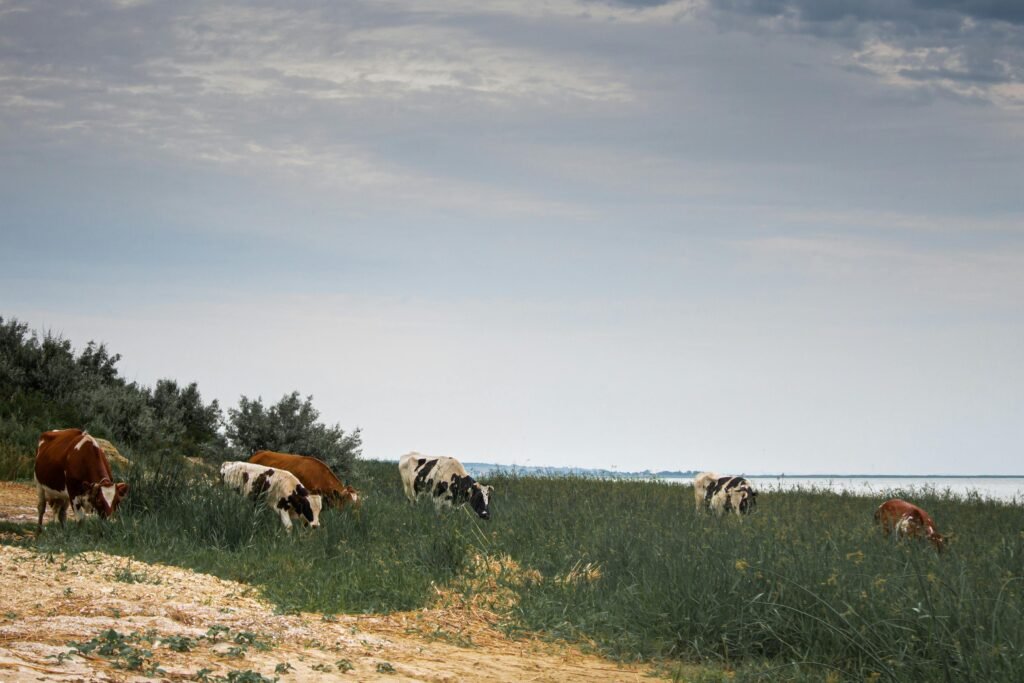
The Rise of Organic Cattle Feed: Benefits, Trends, and Best Practices
In recent years, the demand for organic products has skyrocketed, not just in the realm of human food but also in animal agriculture. Organic cattle feed has emerged as a significant subniche within the livestock sector, driven by consumer preferences, health considerations, and environmental sustainability.
This article explores the benefits, trends, and best practices surrounding organic cattle feed.
What is Organic Cattle Feed?
Organic cattle feed refers to feed that is produced without the use of synthetic fertilizers, pesticides, herbicides, or genetically modified organisms (GMOs). It adheres to strict guidelines set by regulatory bodies, ensuring that the ingredients are sourced from organic farms and processed in a manner that maintains their integrity.
Key Standards for Organic Certification
To be labeled as organic, cattle feed must meet specific criteria:
Non-GMO: Ingredients must not be genetically engineered.
Natural Inputs: Feed must be sourced from organic farms that use sustainable practices.
No Synthetic Additives: The use of artificial preservatives, colors, or flavorings is prohibited.
Animal Welfare: Cattle must be raised in a manner that promotes natural behaviors and health.
Benefits of Organic Cattle Feed
1. Healthier Livestock
Organic cattle feed often contains higher levels of omega-3 fatty acids, vitamins, and antioxidants. These nutrients contribute to the overall health of the cattle, leading to:
Improved immune function
Enhanced growth rates
Better reproductive performance
2. Environmental Sustainability
Organic farming practices prioritize soil health, biodiversity, and water conservation. By using organic cattle feed, farmers can:
Reduce chemical runoff and pollution
Promote soil fertility through crop rotation and cover cropping
Support local ecosystems
3. Market Demand and Premium Pricing
Consumers are increasingly willing to pay a premium for organic meat and dairy products. By switching to organic cattle feed, farmers can position themselves in a lucrative market segment, benefiting from higher profit margins.
4. Improved Meat and Milk Quality
Studies have shown that beef and dairy products from organically fed cattle tend to have better flavor profiles and higher nutritional value. This quality can enhance consumer satisfaction and loyalty.
Trends in Organic Cattle Feed
1. Increased Availability of Ingredients
As demand for organic products grows, so does the availability of organic feed ingredients. Farmers now have access to a wider variety of organic grains, forages, and supplements.
2. Technological Advancements
Innovations in agricultural technology have made it easier to produce organic feed. Improved farming practices, such as precision agriculture and advanced breeding techniques, are helping to enhance the yield and quality of organic crops.
3. Holistic Farming Practices
Many organic farmers are adopting holistic systems that integrate livestock and crop production. This approach not only maximizes resource use but also improves soil health and reduces dependency on external inputs.
4. Focus on Local Sourcing
There is a growing trend toward sourcing organic feed ingredients locally. This practice reduces transportation costs and carbon emissions while supporting local economies.
Best Practices for Implementing Organic Cattle Feed
1. Conduct a Nutritional Assessment
Before transitioning to organic cattle feed, it’s essential to assess the nutritional needs of your herd. Work with a livestock nutritionist to develop a balanced diet that meets the specific requirements of your cattle.
2. Source Quality Ingredients
Ensure that all feed ingredients are certified organic. Establish relationships with reliable suppliers who can provide consistent quality and availability.
3. Monitor Cattle Health
Regularly evaluate the health and performance of your cattle. Keep detailed records of weight gain, reproduction rates, and overall health markers to assess the effectiveness of the organic feeding program.
4. Educate and Train Staff
Invest in training for farm staff on the principles of organic farming and the specific requirements of organic cattle feed. This knowledge is crucial for successful implementation and compliance.
5. Stay Informed on Regulations
Organic standards can vary by region and may change over time. Stay updated on local regulations and certification requirements to ensure compliance and maintain your organic status.
Conclusion
The shift towards organic cattle feed is not just a passing trend; it represents a fundamental change in how we approach livestock nutrition. With numerous benefits for cattle health, environmental sustainability, and market demand, organic cattle feed is becoming an essential component of modern farming practices. By embracing this sub-niche, farmers can not only improve their operations but also contribute to a healthier food system for everyone.
As the organic movement continues to grow, staying informed and adapting to best practices will be key for cattle producers looking to thrive in this evolving landscape.
Recommendation here

